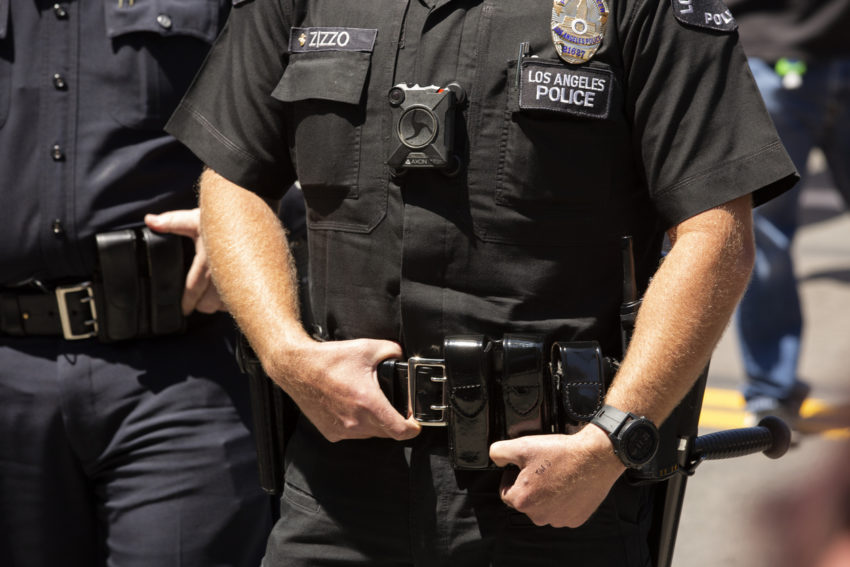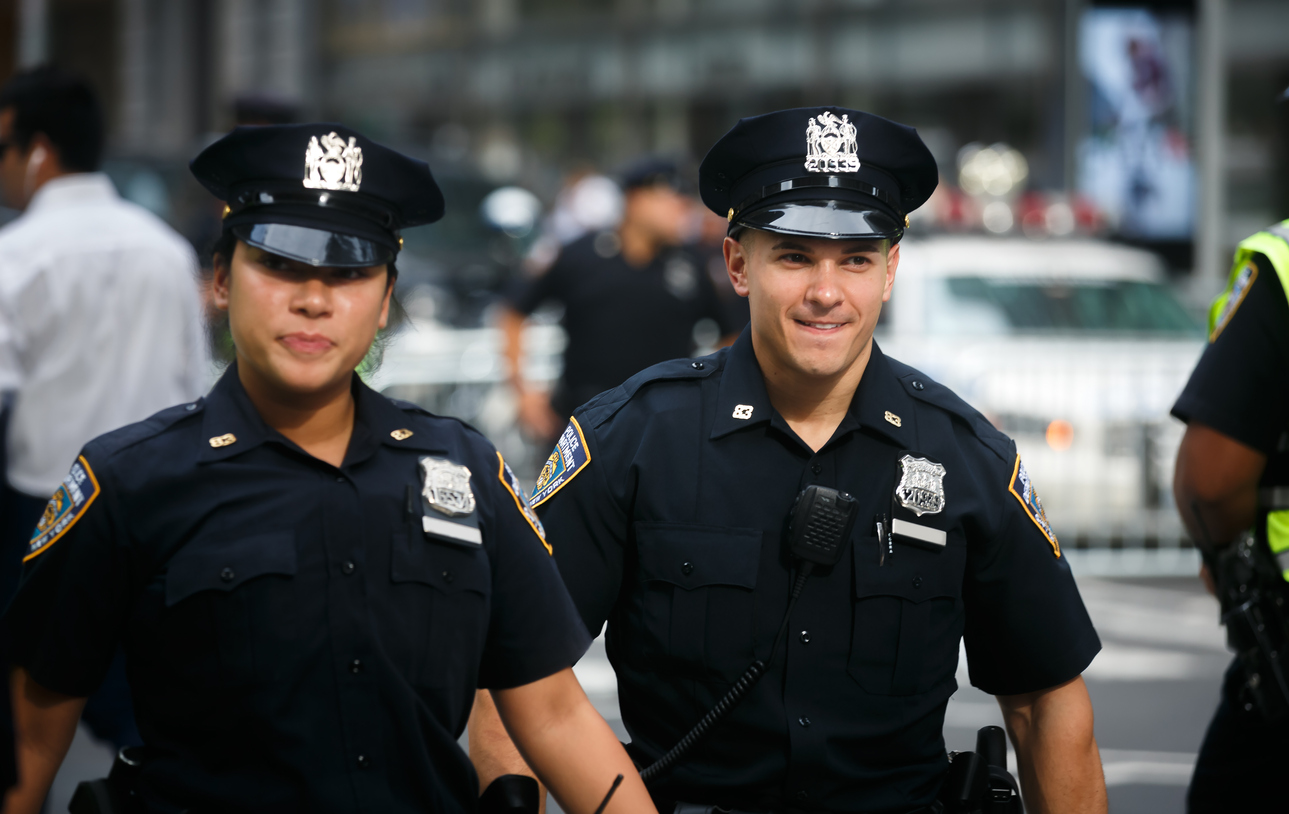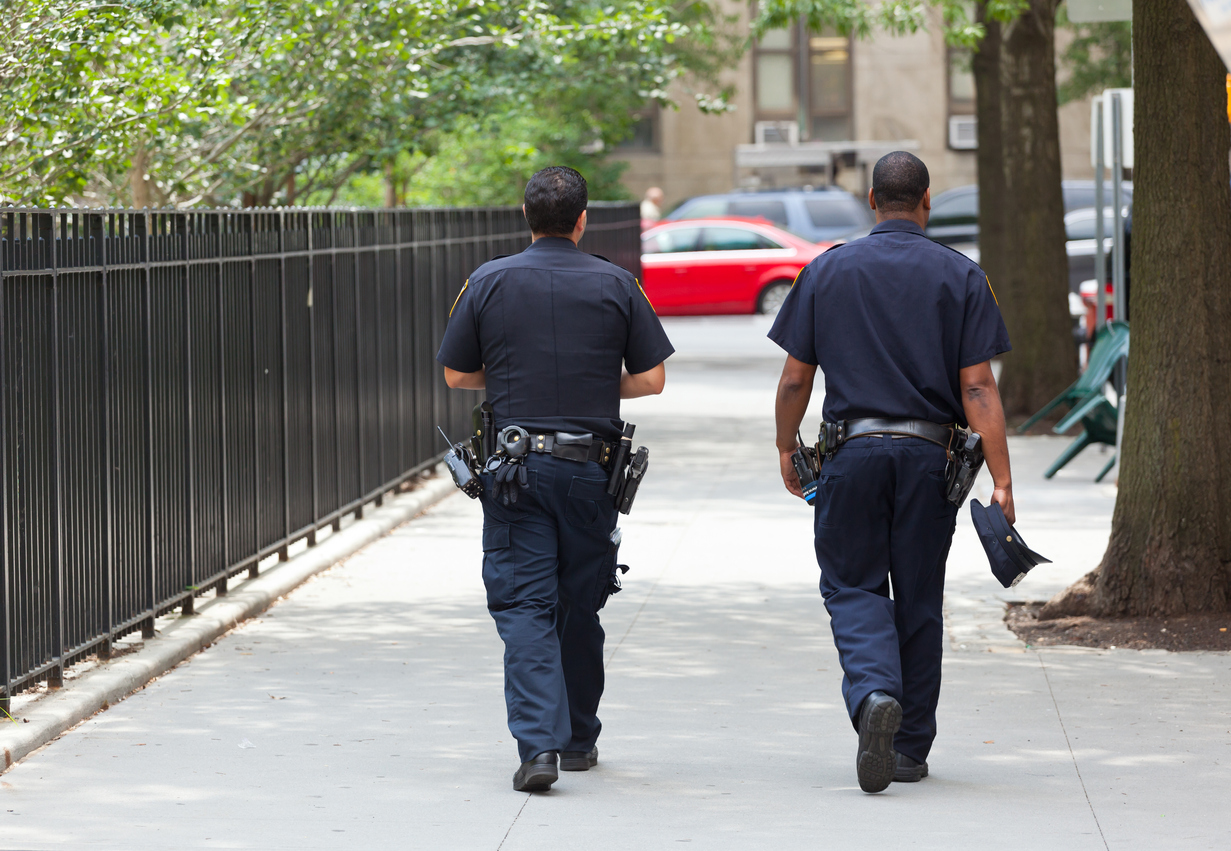
Share On Social!
Police are more likely to stop and search Latinos than white people, even though white people are more likely to possess illegal material, according to data from Texas and California, two states with large Latino populations.
“That discrepancy could mean that a lot more innocent Latino people are being subjected to searches than white people are, an invasive and often demeaning process, which can damage trust in police,” according to Houston Public Media.
The data comes out a year after the police killing of George Floyd, which reinvigorated Black Lives Matter protests against police brutality and a wave of police reform efforts, like implicit bias trainings.
Now reform activists and city officials hope the data can spark more change.
“I look forward to our Police Commission and department leaders using this information to improve best practices, and I expect the department to work consciously and even-handedly to earn the trust of every Angeleno, every day, with every interaction,” said Eric Garcetti, Los Angeles Mayor, in a written statement, according to Los Angeles Times.
What the Police Search Data Says
The study in Texas examined data from millions of stops made by police in Texas in 2020 from the Institute for Predictive Analytics in Criminal Justice.
The institute collects data to identify where racial profiling may be taking place and uses it to conduct police training.
“We have no way of getting into the officer’s brain and figuring out what the intention of that officer was, whether the officer intended to make a legitimate stop or if the officer was making a stop as a result of some racist factor,” said Alex del Carmen, head of the Institute for Predictive Analytics in Criminal Justice, according to Houston Public Media. “But what we all agree with across America is that the result of the search is telling.”

The Institute for Predictive Analytics in Criminal Justice found the following key findings:
- Latinos accounted for the largest percentage of individuals who were searched (38.8%)
- Latinos accounted for the largest percentage (37.1%) of individuals who were arrested due to contraband.
- Latinos and Black people were more likely to be arrested than white people if contraband was
A similar analysis was conducted in Los Angeles by the Los Angeles Times.
“The Times analysis found that across the city, 24% of black drivers and passengers were searched, compared with 16% of Latinos and 5% of whites, during a recent 10-month period. That means a black person in a vehicle was more than four times as likely to be searched by police as a white person, and a Latino was three times as likely. Yet whites were found with drugs, weapons or other contraband in 20% of searches, compared with 17% for blacks and 16% for Latinos,” according to the Los Angeles Times.
Civil rights activists worry that the data means further damage to the relationship between communities of color and law enforcement.
“Even if you have reasonable suspicion or probable cause, if you’re not producing arrests that go directly to the highest levels of public safety, all you’re doing is dragnetting, with a very high cost in trust,” said Connie Rice, a civil rights attorney who has worked with on reform with the LAPD, according to the Los Angeles Times.
Police Reform in Wake of George Floyd Protests: Implicit Bias Training
As a part of ongoing police reforms since the George Floyd Protests, police departments have focused on implicit bias trainings and increasing diversity on the force.
Implicit bias training for police officers rose in popularity after the Black Lives Matter protests in Ferguson, Missouri in 2014, according to NPR.
Now, most states require police officers to go through a few hours of training each year to address any biases that may affect them on the job.
Connecticut passed a bill last fall that requires implicit bias training for police officers. State officials, including judicial and probation officers, outside the region of Indianapolis now have to take implicit bias training.
Gov. Phil Murphy of New Jersey also passed a bill last year mandating implicit bias training for state, county and municipal law enforcement officials.
Police in Louisville, Kentucky, where Breonna Taylor was killed after officers broke into her home, are now required to complete 8 hours of implicit bias training each year, according to Louisville ABC affiliate WHAS11.
State officials believe that implicit bias training will make a substantial difference.
“I hope that educating these very important groups in our criminal justice system will allow us to take a very honest look at the issue of racial disparity and how we can make sure everyone who becomes involved with the legal system will have confidence that we are really true to our word ‘equal justice for all,’” said Madison County Court Judge George Pancol, who will be conducting the implicit bias training for state officials outside of Indianapolis, according to the Herald Bulletin.
Gov. Murphy of New Jersey felt similarly.
“This action, among other critical reforms led by Attorney General Grewal, is a part of a comprehensive approach to ensure that New Jersey is second to none in demanding the highest standards of accountability and professionalism from our law enforcement officers,” Murphy said, according to the Official Site of the State of New Jersey.
Police Reform in Wake of George Floyd Protests: Workforce Diversification
In addition to training police officers on bias, many departments are aiming to diversify their workforce to better reflect the populations they serve.
“The share of minority officers nationally has nearly doubled in three decades, growing from 14.6 to 27.3 percent since 1987, according to the U.S. Bureau of Justice Statistics. But that still doesn’t equal the share of minorities in the U.S., at 37.2 percent,” according to PEW Research study.
The Illinois State Police is one of the departments working to recruit Latino officers, as the state Latino population (20%) is not represented proportionally in their police force.
“We don’t have a huge number of Latinos within the Illinois State Police,” said Master Sergeant Hector Alejandre, according to WGN9. “We are less than 10 percent.”
 Sioux City, Iowa, lacks Latino police officers, especially compared to the city’s population.
Sioux City, Iowa, lacks Latino police officers, especially compared to the city’s population.
“The city has a Latino population of 19.1 percent, but just 3.2 percent of the officers on its police force are Hispanic,” according to the Sioux City Journal.
The Sioux City Police Department (SCPD) has struggled to hire diverse candidates, even after consulting leaders in communities of color on how they can diversify.
“We’ve looked at every avenue,” said Lt. Chris Groves of the SCPD, according to the Sioux City Journal. “We’re always open to suggestions if people have an idea how to do that. We simply just don’t get the applicants.”
A fear of the police has strained recruitment from communities of color.
“When you’re dealing with a demographic that is from a different country and speaks a different language, there is because of what we see in the media that fear factor from local government or a local police force,” said Waco City Council Member Hector Sabido, according to the Waco Tribune-Herald.
Still, some police reform advocates argue that addressing implicit bias and diverse representation are only part of the answer.
“Transformation of police departments, their role and relationship to our communities requires a change in culture, accountability, training, policies and practices,” according to the Advancement Project.
How Can We Fight Implicit Bias?
Everyone has implicit bias.
Implicit biases are stereotypes that affect our actions and decisions about others, beyond our conscious control. Fortunately, these biases also can be “rewired” toward more compassion for others.
Learning about our implicit biases is important to ensure we treat others equally and aren’t causing harm to others with preconceived notions.
Download the free Salud America! Action Pack “Find Out If You Have Implicit Bias and What to Do Next.”
This Action Pack will help you see if you have implicit bias, learn from others who have overcome their own implicit bias, and also encourage others to learn about implicit bias, too.
Explore More:
Overcoming Harmful BiasesBy The Numbers
3
Big Excuses
people use to justify discriminatory behavior



